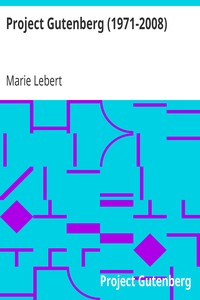| Summary |
"Project Gutenberg (1971-2008)" by Marie Lebert is a comprehensive account of the influential digital library project started in the early 1970s. This publication, likely written in the early 21st century, serves as both a historical record and an analysis of Project Gutenberg's growth, methods, and impact on public access to literature. The book focuses on the mission of making literary works in the public domain available for free in digital formats, reflecting broader societal changes in access to knowledge and literature. The book details the inception of Project Gutenberg, highlighting its founder Michael Hart's vision for a world where literature could be freely accessed and shared. It chronicles key milestones such as the digitization of famous texts like "The United States Declaration of Independence," and the project's expansion to 25,000 books in various languages by 2008. Lebert describes the methods used in digitizing works, including the roles of volunteers, and the significant evolution of the internet that facilitated this growth. Moreover, the book discusses the challenges posed by copyright laws and the project's determination to navigate these complexities while striving for a more literate world. Overall, it paints a picture of a pioneering effort in the realm of digital publishing that has laid the groundwork for future access to literature and cultural resources. (This is an automatically generated summary.)
|

